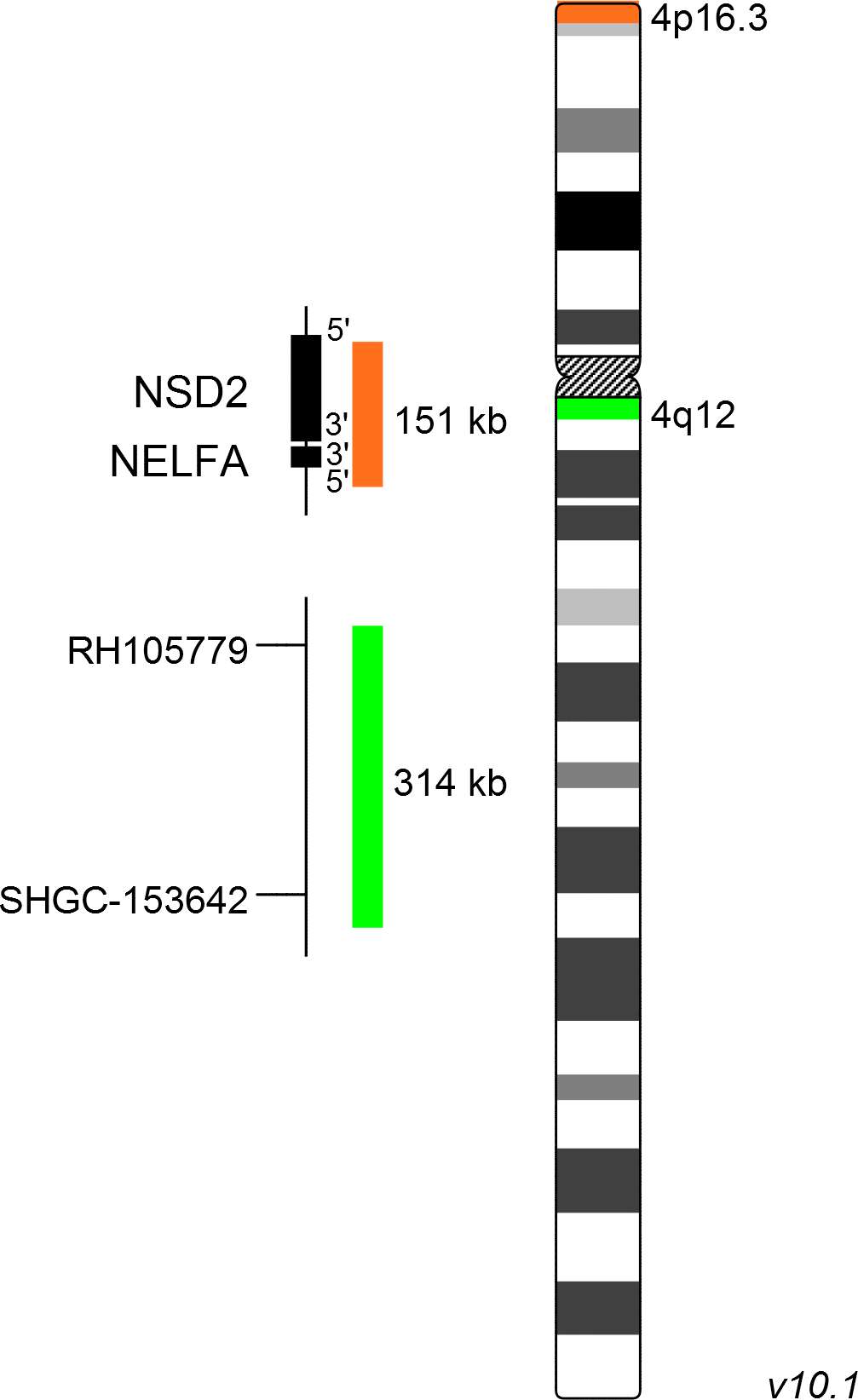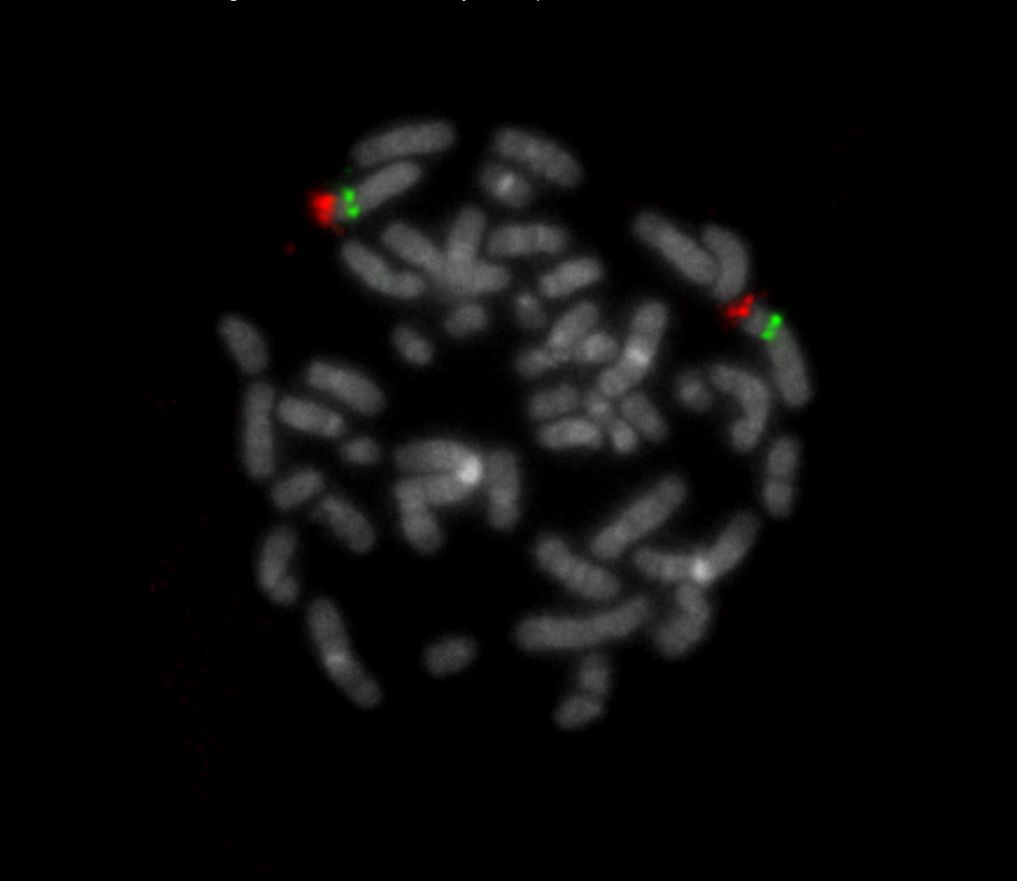
XL Wolf-Hirschhorn
Deletion Probe
- Order Number
- D-5416-050-OG
- Package Size
- 50 µl (5 Tests)
- Chromosome
- 044
- Regulatory Status
- IVDD
IVDR Certification
MetaSystems Probes has already certified a wide range of FISH probes, according to IVDR.
This product remains IVDD-certified until further notice.
Discover all IVDR-certified products
XL Wolf-Hirschhorn consists of an orange-labeled probe hybridizing to the NSD2/NELFA gene region at 4p16.3 and a green-labeled probe hybridizing to a region at 4q12.
Probe maps for selected products have been updated. These updates ensure a consistent presentation of all gaps larger than 10 kb including adjustments to markers, genes, and related elements. This update does not affect the device characteristics or product composition. Please refer to the list to find out which products now include updated probe maps.
Probe map details are based on UCSC Genome Browser GRCh37/hg19, with map components not to scale.
Wolf-Hirschhorn syndrome (WHS) is a rare genetic disorder characterized by a range of problems including the minimal diagnostic criteria: distinctive facial features (Greek warrior helmet appearance), congenital hypotonia, intellectual disabilities, delayed development and seizures.
The association of partial 4p16 deletions with WHS was first described by Cooper and Hirschhorn in 1961. Most 4p16 deletions in WHS occur de novo, only in the minority of cases the rearranged chromosome is inherited. WHS is a contiguous gene syndrome associated with haploinsufficiency of several closely linked genes. The severity of clinical manifestation depends on the amount of genetic material affected.
Two WHS critical regions (WHSCR) have been identified. The classical WHSCR1, spanning 165 kb on chromosomal location 4p16.3, includes the genes NSD2 (nuclear receptor binding SET domain protein 2) and NELFA (negative elongation factor complex member A). WHSCR2 was defined based on the identification of patients with atypical forms of WHS, showing no deletion of WHSCR1. WHSCR2 is located distally to WHSCR1 partially including the gene NSD2, but excluding NELFA.
Clinical Applications
- Microdeletion Syndrome (MicroDel)

Normal Signal Pattern:
Two green (2G) and two orange (2O) signals.

Aberrant Signal Pattern:
Two green (2G) and one orange (1O) signal resulting from loss of one orange signal.
- Wright et al (1997) Hum Mol Gen 6:317-324
- Zollino (2003) Am J Hum Genet 72:590-597
- Buggenhout (2004) J Med Genet 41:691-698
Certificate of Analysis (CoA)
or go to CoA Database




